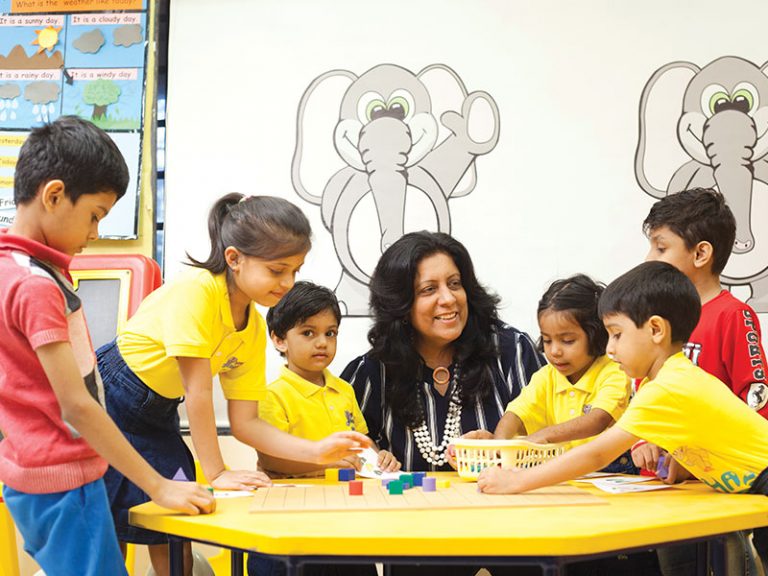No products in the cart.
Why children should learn coding
The science of writing computer codes to create apps, websites and software, coding helps children develop logical thinking, problem-solving, and application skills – Jayalakshmi Vaidyanathan

Coding is the new buzzword of Indian K-12 education. Across the country, private schools and even preschools are introducing age-appropriate computer coding programmes to acquaint 21st-century children with the science and technology which run the digital devices they love so much. The science of writing computer codes to create apps, websites and software, coding helps children develop logical thinking, problem-solving, and application skills.
Purna and Shwetha Mukesh, co-founders of the Bangalore-based non-profit organisation, KidsWhoKode, which offers computer education to under-privileged children in 15 government schools, believe that coding is a must-have 21st century skill for all children. “Data shows that 52 percent of all jobs in India require basic understanding of computers, yet only 7 percent of children are computer literate. This gap has to be bridged quickly. Teaching coding introduces children to computers, problem-solving and critical thinking. It also builds confidence and empowers children to create, not just consume technology,” says Purna.
According to Shwetha, over the past year since KidsWhoKode began training government school students in coding, they’ve witnessed its “amazing” benefits first hand. “From an academic perspective, there have been improvements in math and English scores. More important, students have learned design thinking, teamwork, peer-to-peer learning, improved communication skills, and begun to correlate classroom teaching with the outside world,” says Shwetha.
Writing in The Times of India (September 23, 2019), Javaid Sofi, a US-based technology blogger, says that “coding is about much more than teaching technology. It incorporates logic, problem-solving, and creativity in an engaging way for children of all ages. The non-cognitive skills that children develop through coding lessons are even more beneficial to young learners than the technical skills they acquire. Coding allows students to be creative without being wrong. If something doesn’t work, students must figure out why and determine how to fix it. Coding is the process of continually making mistakes, learning from them and correcting them. Coding requires creativity and critical thinking — future-ready skills, that, along with collaboration and communication, are essential. Best of all, coding allows students to create content, rather than simply consume it — and that’s a must-have skill for functioning in today’s tech-driven world.”
Given the benefits of children learning computer coding, educationists and IT educators are advocating the introduction of age-appropriate coding in pre-primary and primary school. For instance, Dr. Swati Popat Vats, president of the Podar Education Network which has 360 preschools countrywide, has designed a ‘Start Coding with Jumbo’ programme in its pre-primaries. This play-based screen-free coding programme uses games to teach children the essential principles of coding. For instance, children learn about debugging by looking for mistakes in their worksheets and the importance of sequence by attempting to put a story in the right sequence.
“Coding is the process of creating step-by-step instructions a computer understands and needs for its programmes to work. However, coding in kindergarten is not about computer programming, it’s about laying a foundation for training young children’s brains to think and understand systems, patterns, and instructions through role play, games, puzzles and board games. Today children are surrounded by technology at home, school, everywhere.
Introducing the concept of coding through a screen-free age-appropriate programme in early childhood not only helps to prepare young children for a technology-intensive future but also equips them with critical thinking, problem-solving skills and the resilience to find new solutions — both in school and life,” says Dr. Vats.
How coding works
The code is what tells the computer what to do. But computers don’t understand words. They only understand the concept of on and off. The capabilities of a computer are guided by on and off switches or transistors. Binary code represents these on and off transistors as the digits 1 and 0. An infinite number of combinations of these codes make computers work. In order to make binary code manageable, computer programming languages were invented. These languages serve different purposes, but they all allow programmers to translate important text commands i.e codes into binary code, which is understood by the CPU.
Programmers use many languages such as Python, C++, C, C#, Java, PHP, Ruby, JavaScript etc to write software programmes. The famous game Minecraft is written using JAVA while the widely used social networking site Facebook is written using the PHP program.
Coding apps
There are several apps, books, and online tutorials teaching children how to code. They include Khan Academy,
Codecademy and Coursera, free-of-charge apps such as whitehatjr, qin1, Udacity, SoloLearninc, Tynker and Scratch.
The international non-profit organisation girlswhocode.com provides online and offline coding programmes especially for girl children.
Mitch Resnick and his team at Massachusetts Institute of Technology, USA, who created Scratch, a block-based coding programme accessed by 11 million students worldwide, says that Sratch users learnt math concepts such as variables and conditions; logic such as sequencing and cause and effect; problem solving; collaboration and communication skills; ability to take criticism, identify and fix errors; and perseverance in the face of difficulty.
For preschoolers, many companies have created age-appropriate toys and play-learn resources. For instance LEGO Inc. has created play-robots which children can build and program using code blocks.















Add comment